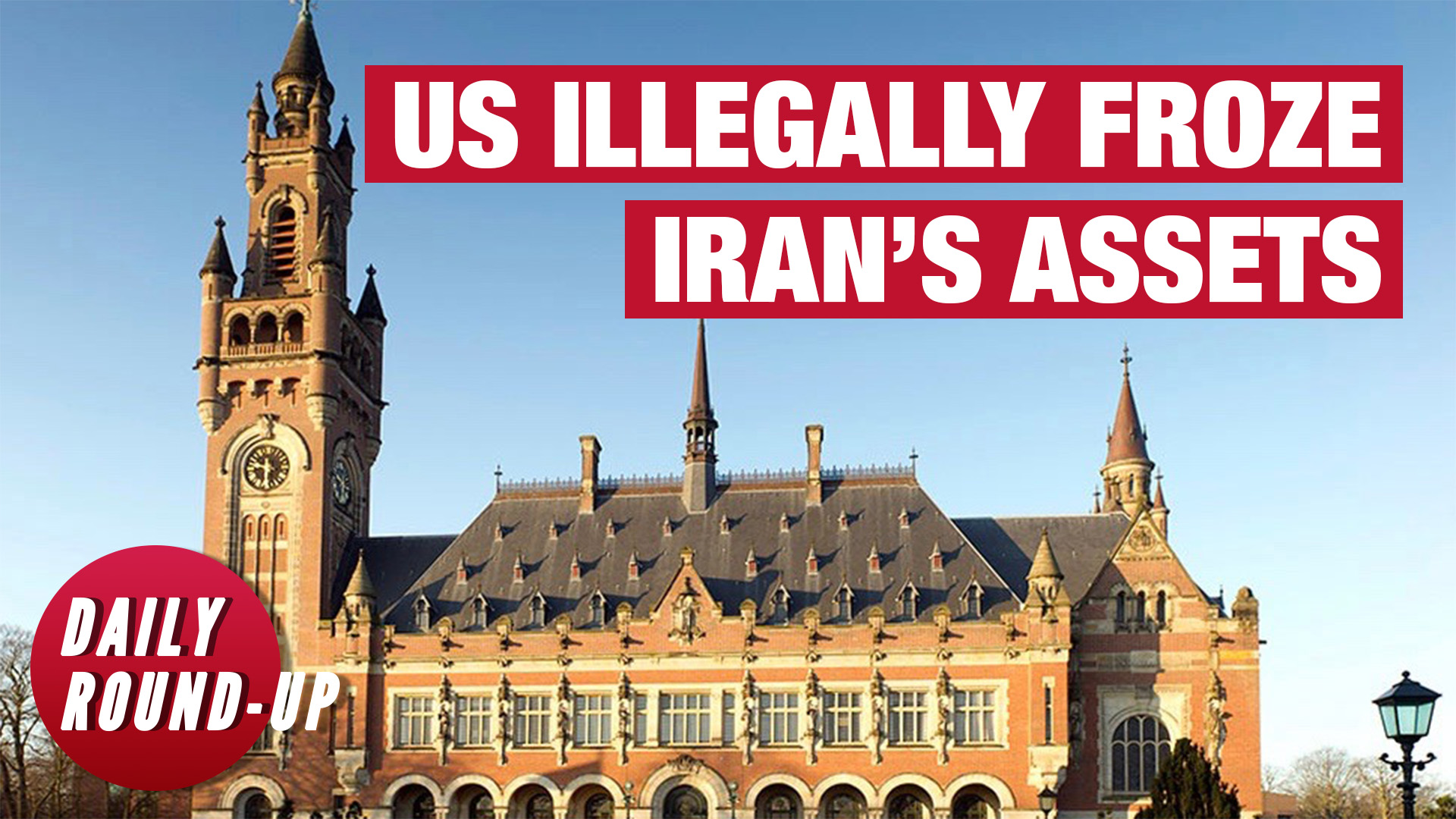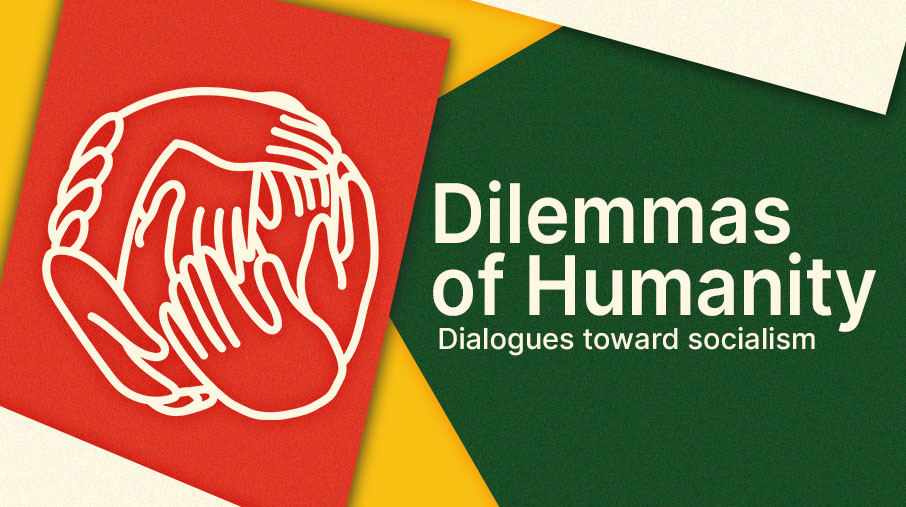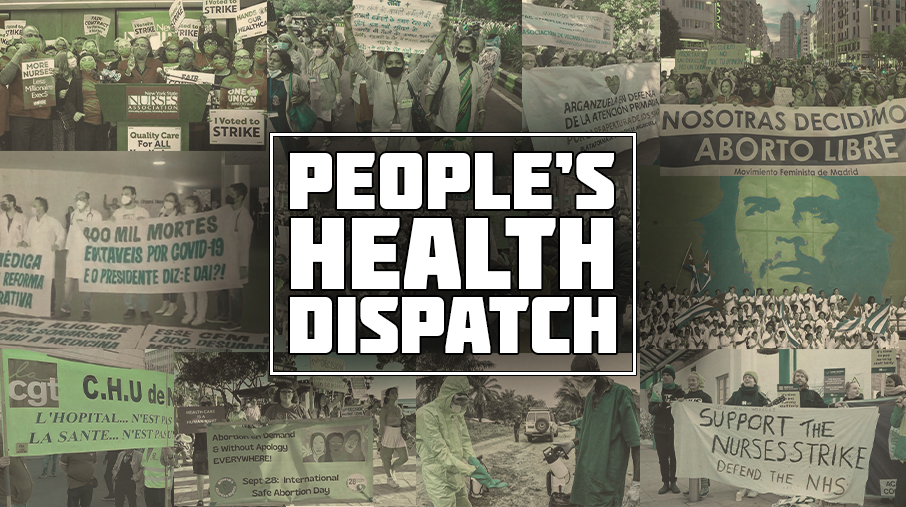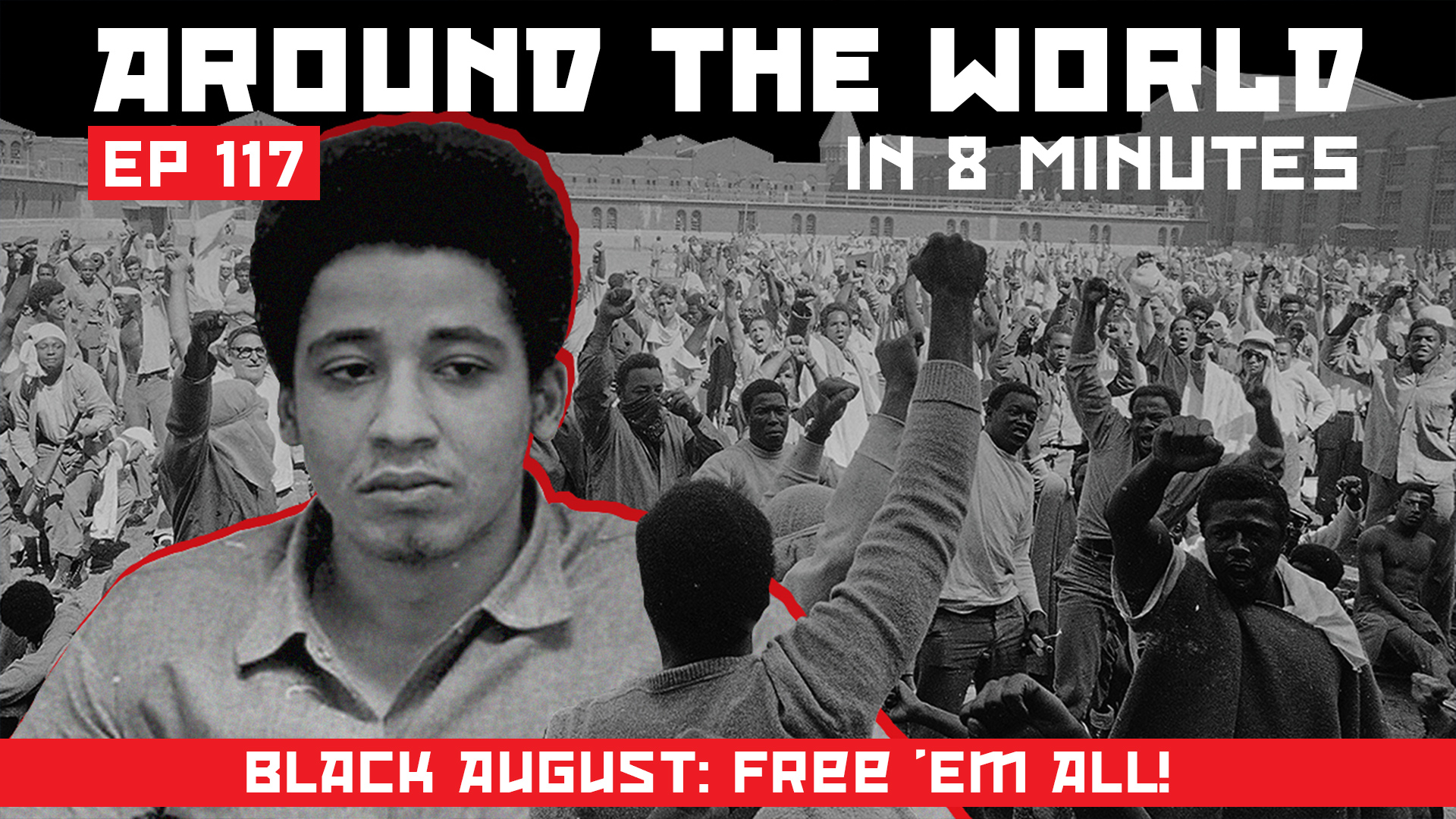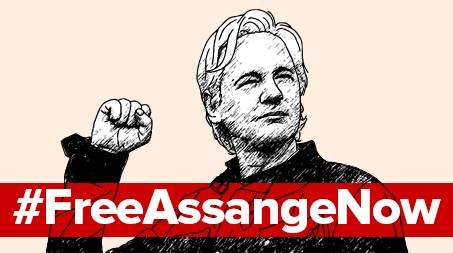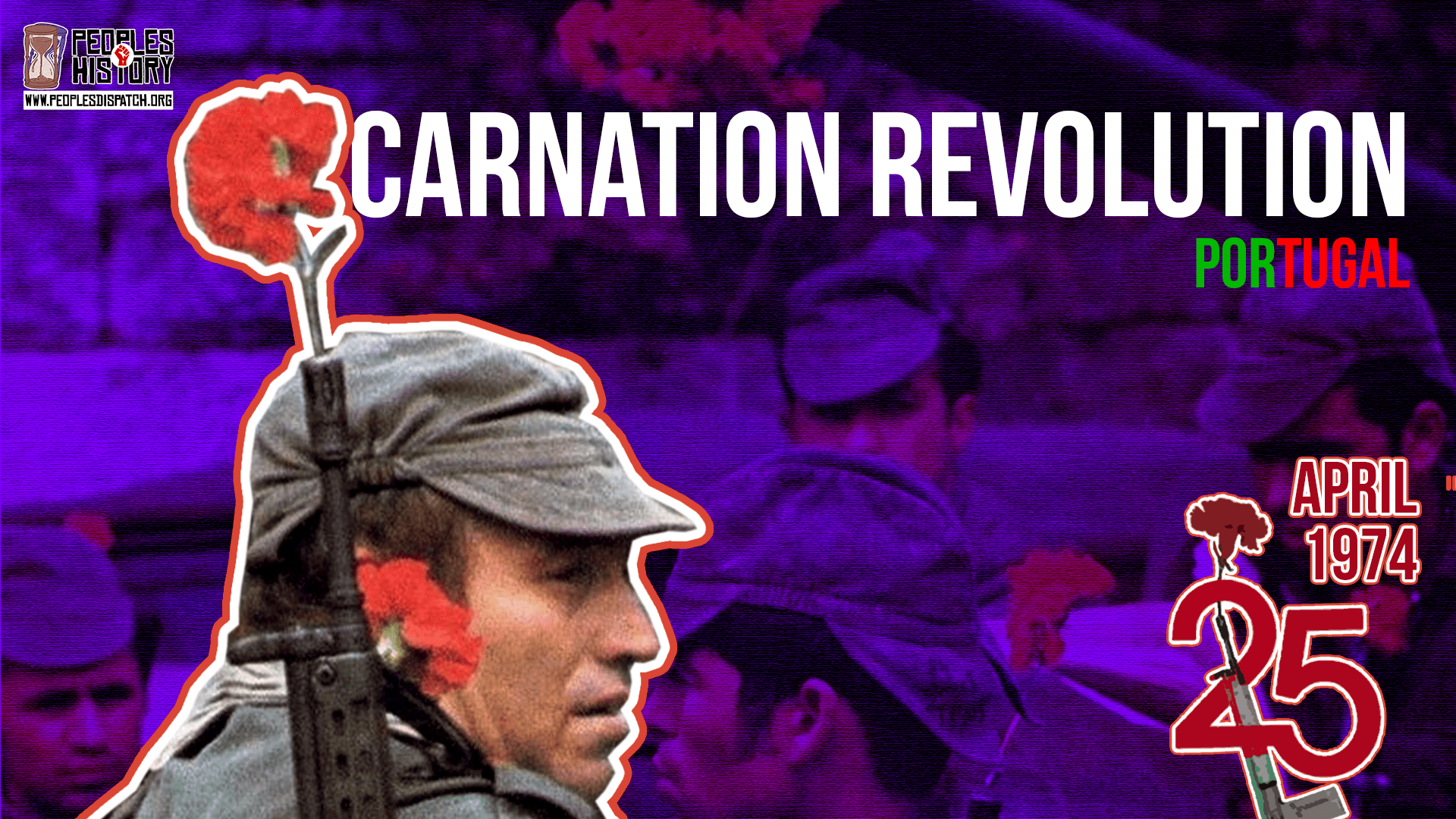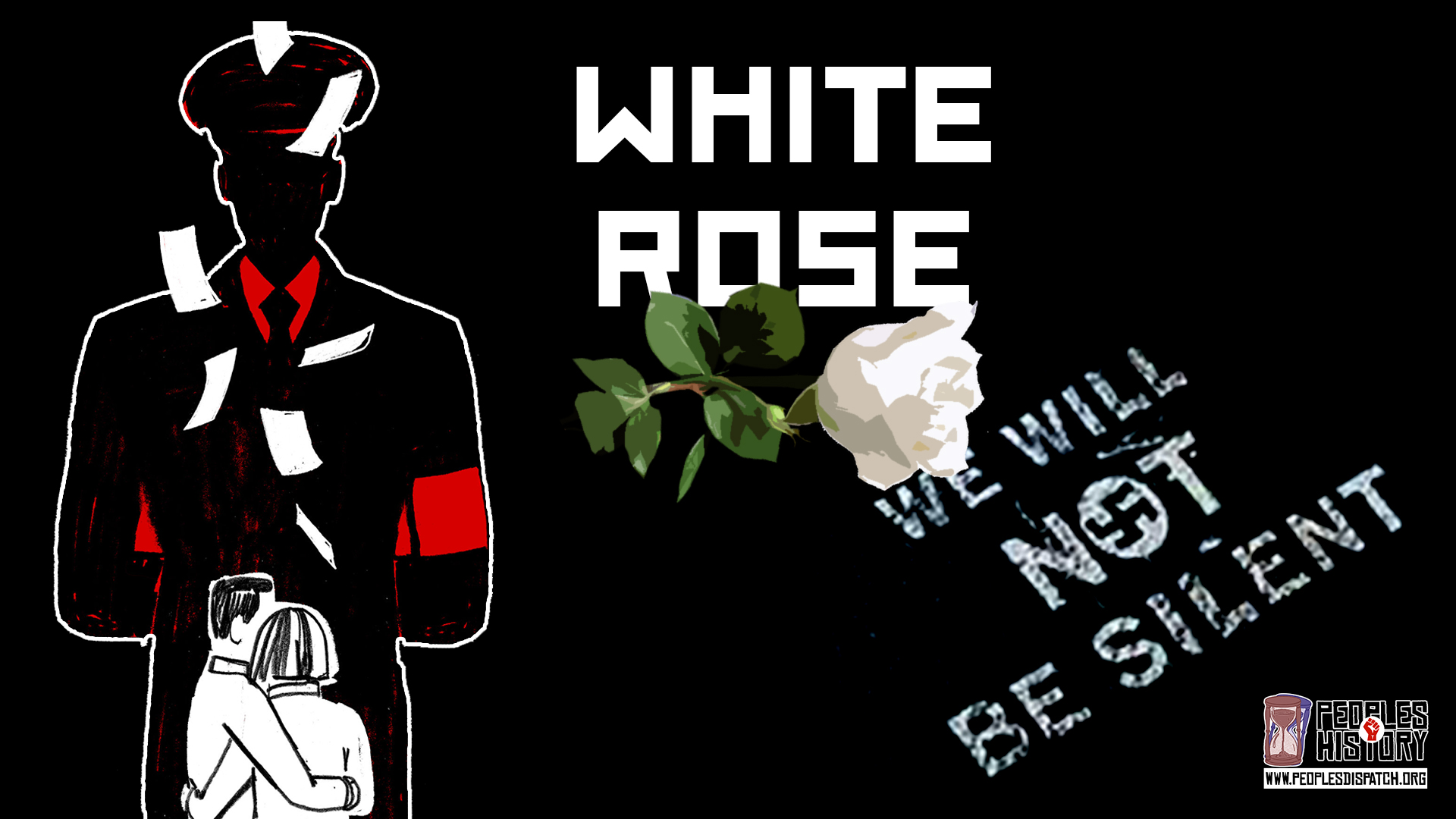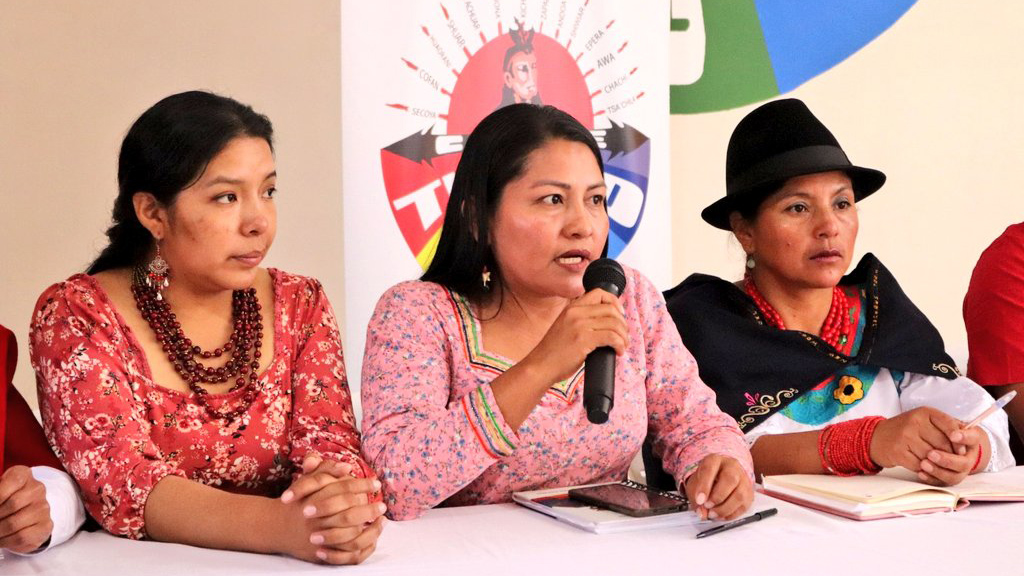 Ecuadorian social movements, left parties reject President Lasso’s “national agreement”
Ecuadorian social movements, left parties reject President Lasso’s “national agreement”
Following Lasso’s call for a “national agreement,” social organizations and progressive political parties rejected dialogue, criticizing Lasso’s neoliberal policies
 Indigenous organizations and government conclude negotiations in Ecuador
Indigenous organizations and government conclude negotiations in Ecuador
The leaders of the CONAIE, FENOCIN and FEINE celebrated the advances made in the dialogue process, but also expressed their discontent, pointing out that agreements on various crucial demands are still pending
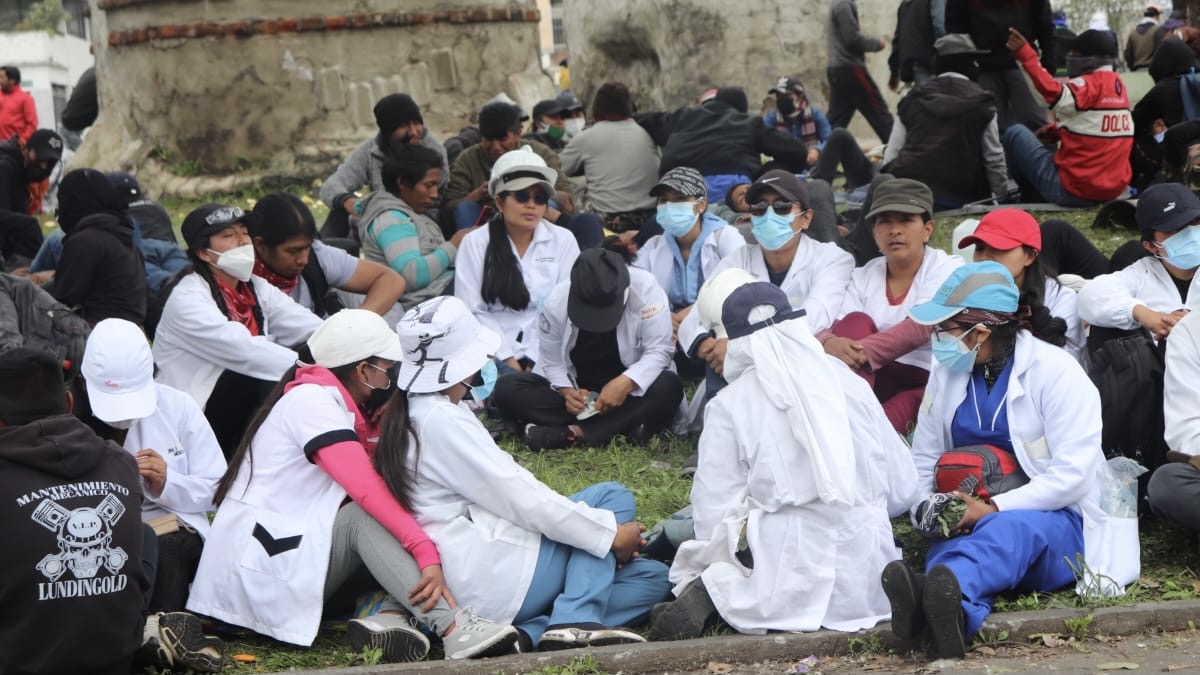 National strike in Ecuador was also a strike for people’s health
National strike in Ecuador was also a strike for people’s health
Strengthening the health system and addressing social and environmental determinants of health ranked high among the demands of the national strike in Ecuador, yet provisional agreement with government leaves it unclear if advances will be made
 Victory after 2 weeks of national strike in Ecuador
Victory after 2 weeks of national strike in Ecuador
The strike ended after a deal was signed by Government Minister Francisco Jiménez, Indigenous leader Leonidas Iza and the head of the Episcopal Conference, Monsignor Luis Cabrera, who acted as mediator.
 Ecuadorian Indigenous organizations and government reach agreement to end national strike
Ecuadorian Indigenous organizations and government reach agreement to end national strike
Indigenous organizations and the government of President Guillermo Lasso reached consensus on the most substantial demands and agreed to continue discussing the pending ones and find a solution to them in the next 90 days
 National strike in Ecuador completes 15 days, struggle continues
National strike in Ecuador completes 15 days, struggle continues
Ecuadorian peasant, Indigenous and Afro-descendant organizations have vowed to continue fighting against poverty and deep inequalities in the country, despite persecution, criminalization and repression by the state
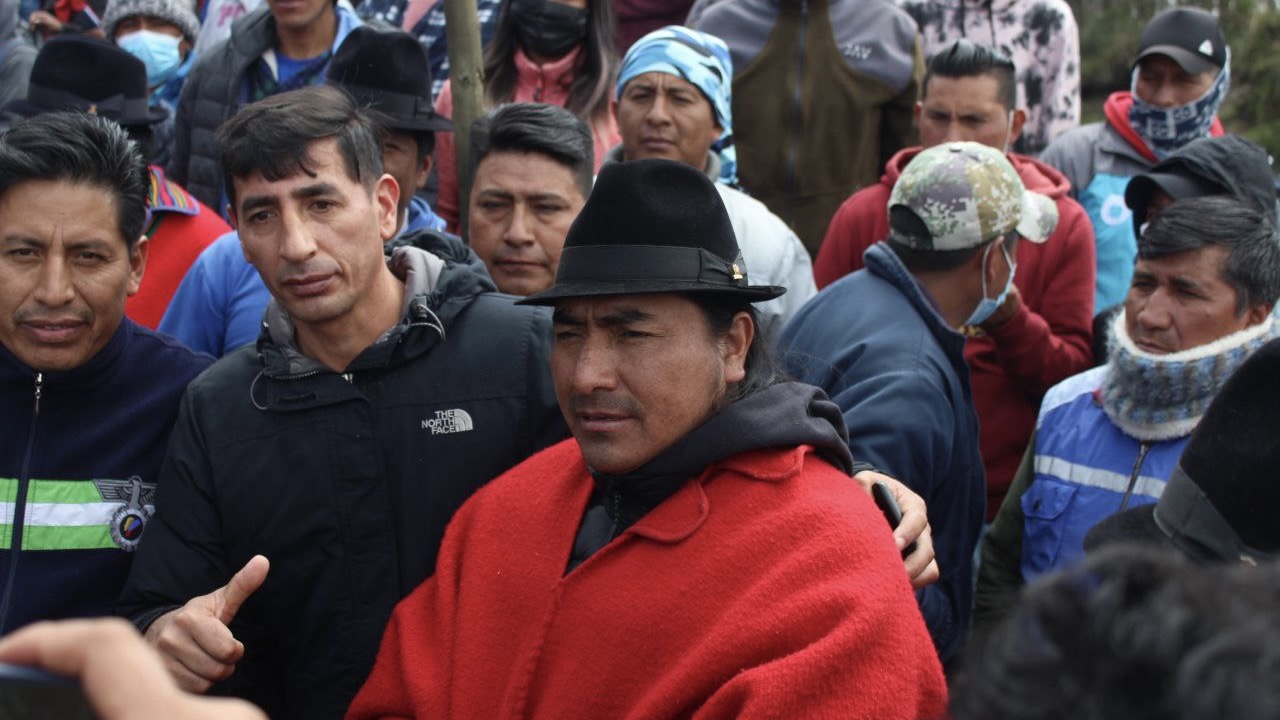 CONAIE condemns wrongful arrest of Indigenous leader Leonidas Iza by Ecuadorian security forces
CONAIE condemns wrongful arrest of Indigenous leader Leonidas Iza by Ecuadorian security forces
Iza’s arrest came after the first day of an indefinite national strike, called by CONAIE among other Indigenous and peasant organizations against the neoliberal economic policies of President Guillermo Lasso’s government, was a success


